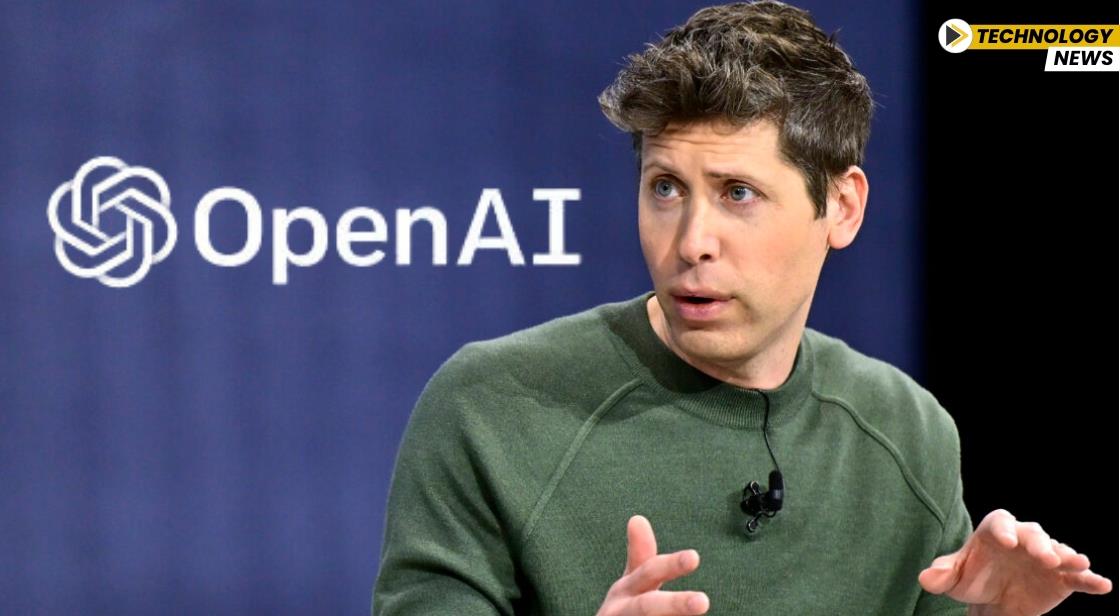Sam Altman Says ChatGPT Leads China in AI, But Gap is Narrow

News Synopsis
At a recent hearing held by the U.S. Senate Commerce Committee, OpenAI co-founder and CEO Sam Altman appeared alongside major tech executives to discuss the country's standing in the global artificial intelligence race.
Joining him were AMD’s Lisa Su, CoreWeave’s Michael Intrator, and Microsoft’s Brad Smith, all addressing how the United States can retain its leadership against rising competition from China.
Altman remarked that although the U.S. currently holds a technological advantage, it's not a wide lead.
“It’s very hard to say how far ahead we are, but I would say, not a huge amount of time,”
he said in response to a question from Senator Ted Cruz.
Shift in Altman’s Tone on AI Regulation
This hearing revealed a notable shift in Altman’s previous position on AI governance. Two years ago, he was a strong advocate for regulatory oversight. However, under the current political climate shaped by President Donald Trump’s return to the White House, Altman appeared more hesitant to support strict regulation.
This change could stem from the Trump administration’s push to eliminate what it considers roadblocks to AI advancement. Key changes include rolling back parts of former President Biden’s executive order on AI, which emphasized ethical guardrails and oversight.
“America Is Still Ahead in the AI Race”: Altman
U.S. Models Like ChatGPT and Google’s AI Remain on Top
OpenAI co-founder and CEO Sam Altman firmly stated that American-developed AI models are still the most advanced globally.
“US-based models—like those developed by OpenAI and Google—remain the most advanced globally,”
he said, while emphasizing that sustained investment and policy support are crucial for maintaining this edge.
“The need to win in infrastructure, sensible regulation that does not slow us down, the sort of spirit of innovation and entrepreneurship that I think is a uniquely American thing in the world,”
Altman explained, laying out the foundations necessary to preserve U.S. leadership.
Lisa Su Stresses Importance of Hardware Innovation
US Leads in AI Chips, But Must Keep Pushing
Lisa Su, CEO of AMD, echoed Altman’s remarks.
“Best AI accelerators in the world,”
she said, referring to the high-performance chips that power advanced AI systems.
Still, she warned against complacency, adding that while China faces some restrictions,
“There are multiple ways to do things,”
suggesting innovation could arise from unexpected sources.
Altman Reflects on His Roots and American Innovation Culture
During the session, Altman briefly departed from his prepared statements to recount his early passion for technology.
“I can draw a straight line from that experience to founding OpenAI and getting to work on companies like Helion,”
he shared, reflecting on how American values of openness and exploration paved the way for AI breakthroughs.
“I am a child of the internet revolution. I have the great honour to be one of the many parents of the AI revolution. And I think it is no accident that that's happening in America again and again,”
Altman said, championing a culture of innovation.
Tech Leaders Push for Infrastructure, Not More Red Tape
Focus on AI Investment and Workforce Training
Throughout the hearing, Altman and other leaders emphasized the need for strategic investments in AI infrastructure and talent development, rather than burdensome regulations.
When asked about mandating pre-release testing and approval of AI models, Altman gave a blunt warning:
“Disastrous,”
he said, cautioning that such measures could paralyze the industry’s rapid progress.
Regarding proposals to let the National Institute of Standards and Technology (NIST) enforce formal standards, Altman responded:
“I don’t think we need it. It can be helpful.”
Sensible Regulation Without Hindering Innovation
Altman called for a more balanced approach:
“Sensible regulation that does not slow us down,”
a phrase that encapsulated the day’s central theme.
Conclusion: A Crucial Crossroads for U.S. AI Leadership
The recent Senate hearing served as a clear signal that the U.S. stands at a pivotal moment in the global AI race. While industry leaders like Sam Altman and Lisa Su affirm that America remains ahead of China in AI development, the margin is narrow—and not guaranteed.
The key takeaway from their testimony is the urgent need for balanced policy: one that promotes innovation, accelerates infrastructure development, and cultivates AI talent, without imposing excessive regulatory burdens.
Altman’s remarks underline that maintaining leadership in AI is achievable, but only if the U.S. avoids complacency and continues to foster its culture of risk-taking, entrepreneurship, and openness. With the world watching and China steadily advancing, the decisions made today—by both policymakers and tech leaders—will shape the trajectory of AI for years to come.
You May Like









